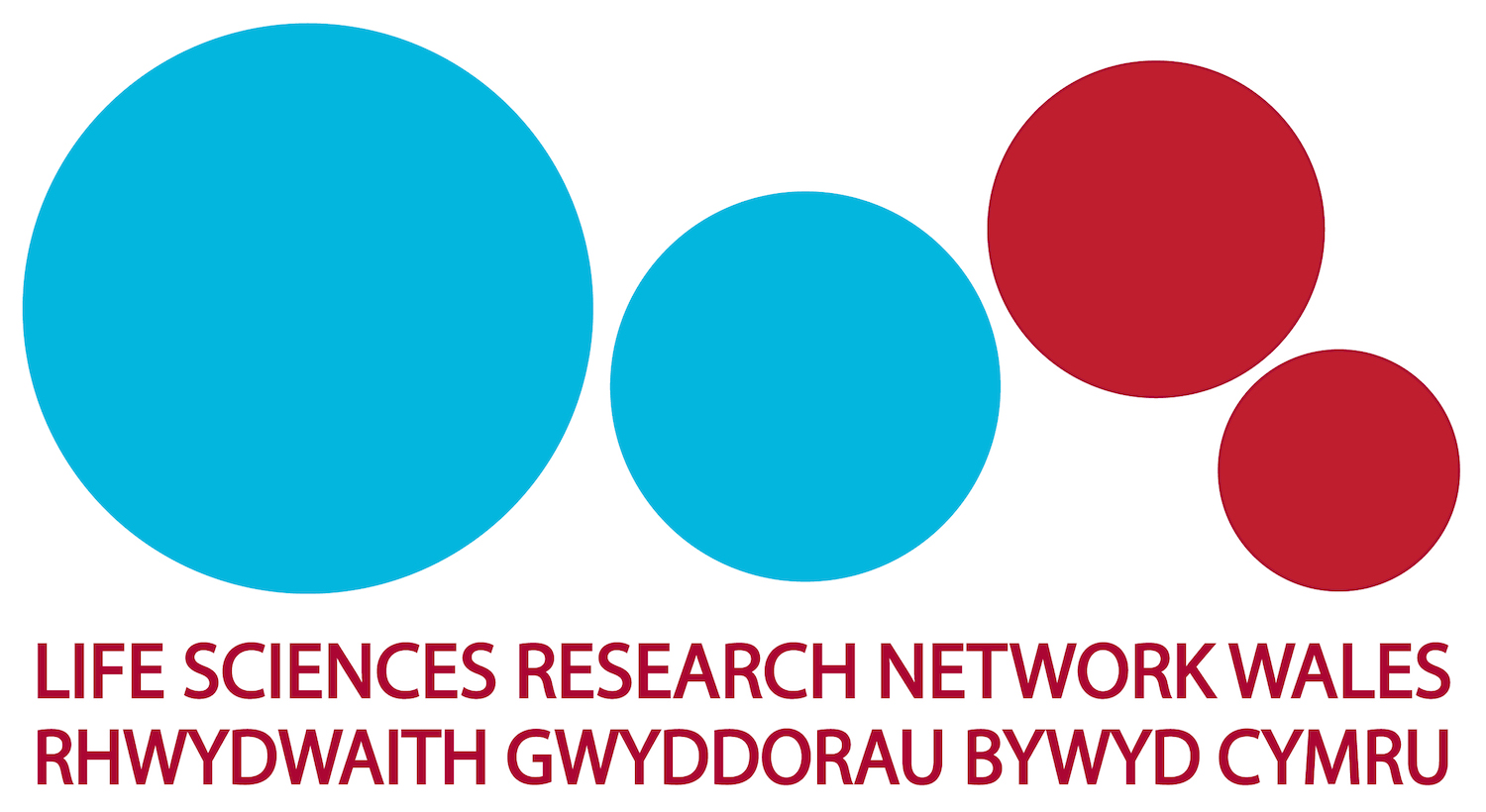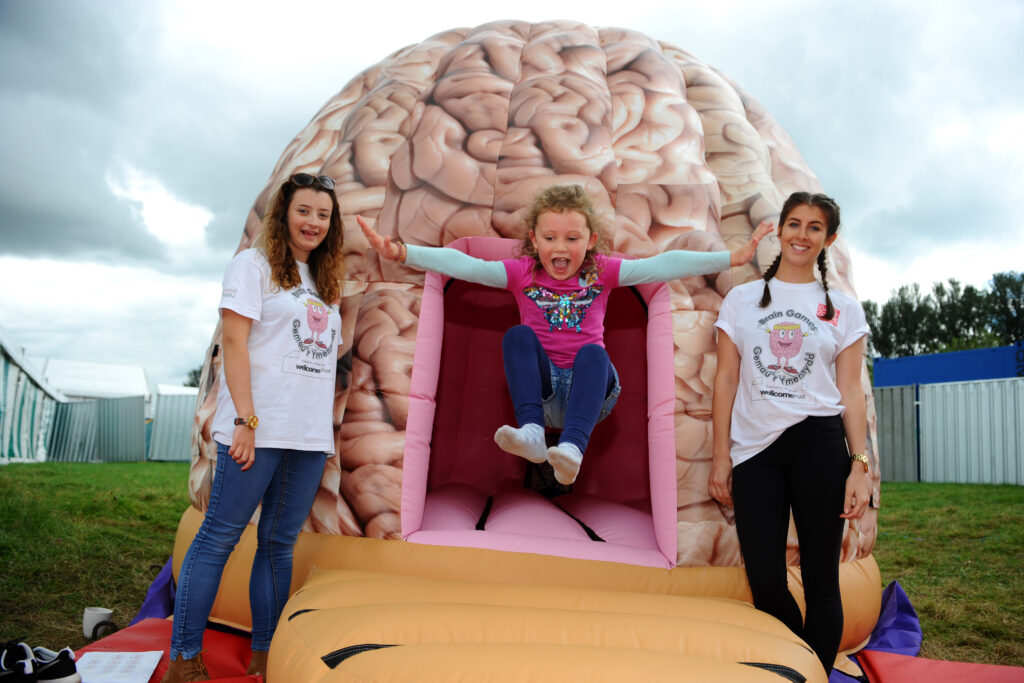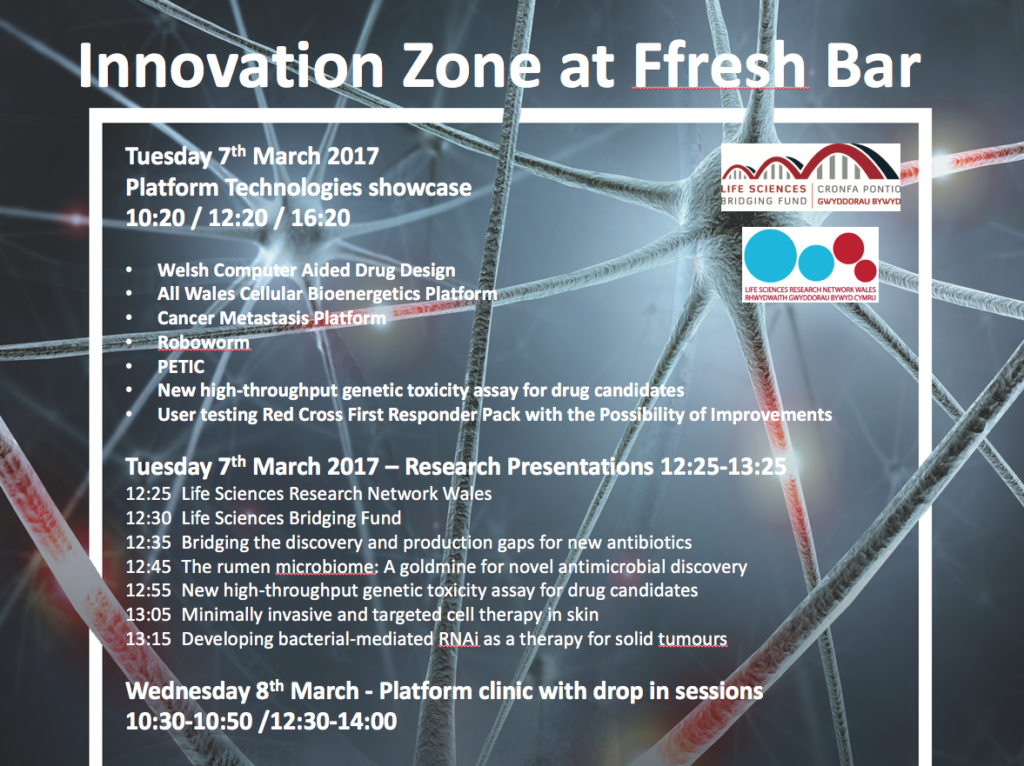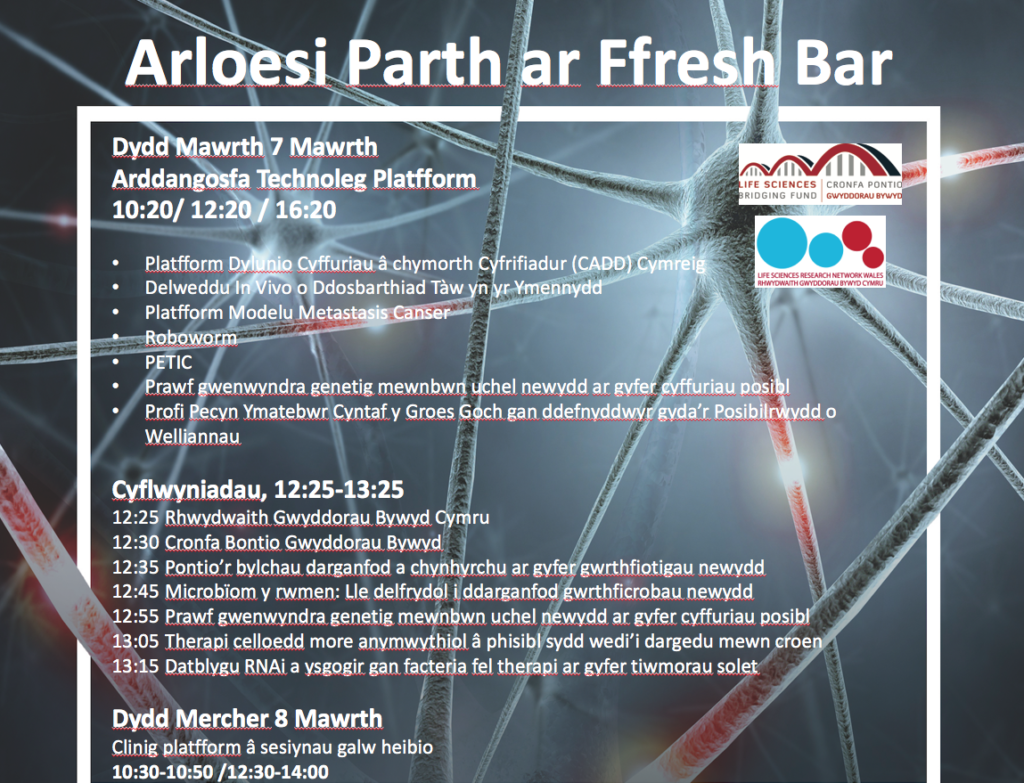The Network has funded the following in its latest call:
Round 4 Funded Studentships
The network recently funded 13 Studentships in the 4th Round. Funded studentships include (PI and project title):
Prof Morgan, Targeting the terminal pathway in complement-driven disease
Dr Davies, Investigating novel small molecule enzyme inhibitors for treating cognitive decline and dementia
Dr Wang, Inhibiting IL-17 production by blocking endogenous RORγt agonists for the treatment of autoimmune diseases
Dr Tsai, Design and in vitro characterisation of a novel multimodular targeting platform for cancer treatment
Dr Tai, Smart Multifunctional Nanocarriers with Biodegradable and Dual Responsive (pH and temperature) Properties from Hyperbranched Polymers for Targeted Cancer Drug Delivery
Dr Johnson, Multiplexed in vitro assay for genetic toxicity screening
Dr Taylor, Targeting zinc signalling to prevent cell division in cancer
Dr Rozanowska, Novel Drug Therapy For Mitochondrial Optic Neuropathy and other Mitochondrial Diseases
Dr McBride, Developing an ovine model of Alzheimer’s disease
Dr Prokopovich, Nanotechnology induced prolonged antimicrobial activity of antibiotic loaded PMMA bone cements
Prof Sewell, Development of artificially enhanced T cells for targeting cancer
Prof Kanamarlapudi, Targeting of interleukin‐13 receptor (IL‐13R)2 expressing pancreatic cancer by a novel hybrid lytic peptide drug
Dr Lloyd-Evans, Developing new small molecule therapies for lysosomal diseases
Round 4 Funded Projects
The Network has recently awarded 15 round 4 research project grants. These include (PI and title):
Prof Sheldon, Countering the unrestrained inflammation of sepsis by targeting the JAK-STAT pathway in human macrophages
Prof Riccardi, Addressing an unmet medical need: developing inhaled calcilytics for steroid-resistant asthma
Dr Fallis, Long Life Imaging Probes for Dementia Patient Stratification
Dr Fallis, 18F-Gemcitabine as Diagnostic Tool in Personalised Chemotherapy
Prof Brambilla, Validation in rodent models of a novel approach to treat mood disorders based on ERK signalling stimulation
Prof Aeschlimann, A new angle to diagnosis and treatment of gluten related disorders
Dr Peall, Development of a Drosophila melanogaster model for SGCE mutation positive Myoclonus Dystonia
Dr Westwell, Chimeric phosphoramidate ProTides as anticancer and antiviral agents with fluorescent probes.
Dr Staples, Targeting Homologous Recombination to sensitise cancer cells to DNA-damaging agents
Prof Gumbleton, Development of Novel BMA-sulfobetaine Nanoparticle Delivery system to treat chronic wound infections
Dr Gwenin, The first preclinical analysis for a novel magnetically directed cancer treatment
Dr Loveridge, Novel antibacterial and antifungal natural products from Pseudomonas mesoacidophila
Prof Casini, Targeting G-quadruplex nucleic acid structures with caffeine gold compounds for cancer treatment
Dr Westwell, Developing Bcl3 inhibitors as anti-metastatic drug candidates
Dr Brancale, Development of a safer method for corneal stromal photo-crosslinking to stop the progression of keratoconus or to treat bacterial corneal infections
Round 2 Funded Impact Awards
The Network has recently funded 4 Research Impact Awards. These include (PI and title):
Dr Gonzalez, ADC targets from in-silico high-throughput screening identification into target validation
Dr Parker, Evaluation of folate receptor α (FRα) binding oligopeptides for targeted gene and drug delivery
Dr Patel, Evaluation of Novel CD200:CD200R Blockade Cancer Immunotherapy
Dr Francis, Targeted metabolic inhibition of T-lymphocytes: directing immunity during human disease
Round 2 Funded Platform Grant
The Network has recently funded one Platform Grant (PI and title):
Dr Piggott, Development of a PDX platform for Drug Discovery and Studies of Disease Biology in Wales








 A Giant Brain Dome proved a popular draw for younger children who bounced inside the giant brain.
A Giant Brain Dome proved a popular draw for younger children who bounced inside the giant brain.











 2016. These workshops are designed to equip the scientists of Wales with a working knowledge of some of the very latest advances in cancer research to help support their own work. The workshop which was kindly organised by Drs
2016. These workshops are designed to equip the scientists of Wales with a working knowledge of some of the very latest advances in cancer research to help support their own work. The workshop which was kindly organised by Drs 